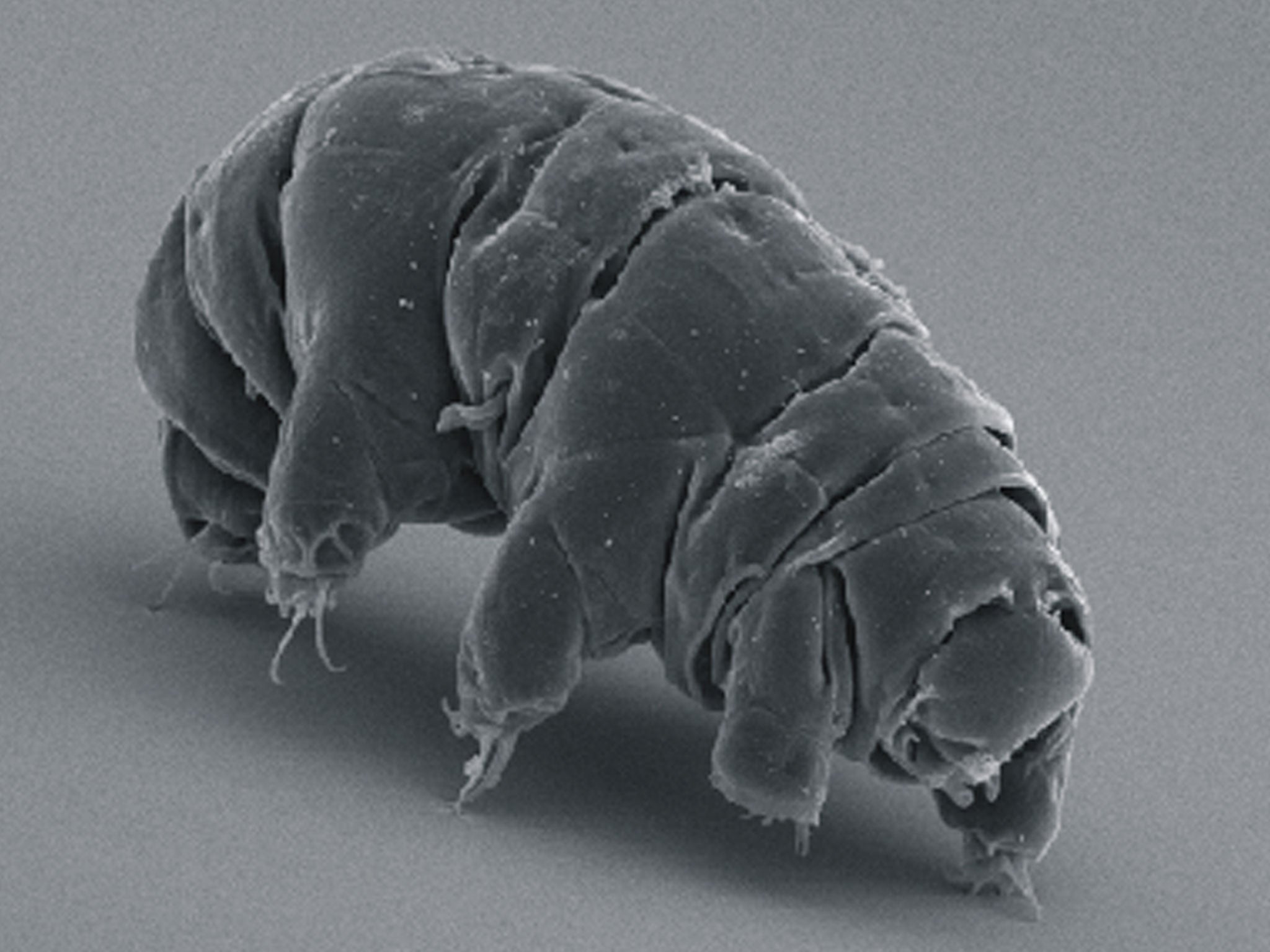Secret behind world’s most indestructible animals discovered by scientists
Tardigrades, also known as water bears or moss piglets, can live and have sex in space

They are the world’s toughest animals, capable of living anywhere from the bottom of the ocean to 5,500 metres up a Himalayan mountain.
They can be boiled at temperatures of up to 150 degrees Celsius or frozen to near absolute zero, but still tardigrades – tiny, Muppet-like creatures also known as water bears or moss piglets – just will not die.
They have even been found on the outside of the International Space Station, where the lack of pressure would kill a human in minutes at most. The tardigrades found it so pleasant, they decided to settle down, have sex and produce offspring.
Now researchers have discovered how they pull off one of their most extraordinary survival techniques.
Dr Thomas Boothby, of North Carolina University, who led the study, said: “The big takeaway from our study is that tardigrades have evolved unique genes that allow them to survive drying out.
“In addition, the proteins that these genes encode can be used to protect other biological material like bacteria, yeast, and certain enzymes – from desiccation.”
These proteins have been named TDPs or ‘tardigrade-specific intrinsically disordered proteins’ in honour of the 1mm-long creatures who evolved to have them.
Previously it had been thought that a type of sugar called trehelose, which is found in other organisms including brine shrimp, was the secret behind the tardigrade’s Lazarus-like ability to return from the dead after being dried out for up to 10 years.
Following the discovery, reported in the journal Molecular Cell, the scientist put the genes into yeast and bacteria, which then gained the same properties as the tardigrades.
Dr Boothby said TDPs could be used to protect crops from drought and to preserve medicines without using a refrigerator.
“Being able to stabilise sensitive pharmaceuticals in a dry state is very important to me personally,” he said.
“I grew up in Africa, where lack of refrigeration in remote areas is a huge problem.
“These real-world applications are one of the things that led me to study tardigrades.”
Join our commenting forum
Join thought-provoking conversations, follow other Independent readers and see their replies
Comments
Bookmark popover
Removed from bookmarks